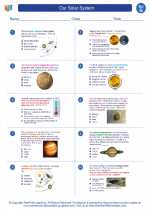Urinary System
The urinary system, also known as the renal system, consists of the kidneys, ureters, bladder, and urethra. Its primary function is to remove waste products and excess substances from the blood, regulate blood volume and pressure, control levels of electrolytes and metabolites, and regulate blood pH.
Kidneys
The kidneys are bean-shaped organs located on either side of the spine, below the ribs. They are responsible for filtering the blood and producing urine. Each kidney contains millions of nephrons, which are the functional units responsible for filtering the blood and reabsorbing essential substances.
Ureters
The ureters are narrow tubes that carry urine from the kidneys to the bladder. Peristaltic contractions of the ureter walls help move the urine towards the bladder.
Bladder
The bladder is a muscular organ that stores urine until it is ready to be excreted from the body. The bladder expands as it fills with urine and contracts when it is time to empty the urine through the urethra.
Urethra
The urethra is the tube through which urine is expelled from the body. In males, the urethra also serves as the passageway for semen during ejaculation.
Functions of the Urinary System
- Excretion of waste products, such as urea and ammonia, from the body
- Regulation of blood volume and pressure through the control of water and electrolyte balance
- Regulation of blood pH by controlling the excretion of hydrogen ions and reabsorption of bicarbonate ions
- Regulation of red blood cell production through the production of erythropoietin
- Activation of vitamin D to maintain proper levels of calcium and phosphate in the blood
Common Disorders of the Urinary System
Some common disorders of the urinary system include urinary tract infections, kidney stones, urinary incontinence, and chronic kidney disease. It is important to maintain the health of the urinary system through proper hydration, balanced diet, and regular exercise.
Study Guide
To study the urinary system, focus on understanding the structure and function of each component, as well as the processes involved in urine formation and excretion. Pay attention to the regulation of blood volume, pressure, and electrolyte balance by the kidneys. Additionally, familiarize yourself with common urinary system disorders and their causes, symptoms, and treatments.
Practice drawing and labeling the urinary system to reinforce your understanding of its anatomy. Use diagrams and flowcharts to illustrate the processes involved in urine formation and the regulation of blood constituents by the kidneys. Finally, consider conducting research on recent advancements in the diagnosis and treatment of urinary system disorders to gain a broader perspective on the topic.
.◂Science Worksheets and Study Guides Seventh Grade. Our Solar System

 Activity Lesson
Activity Lesson
 Activity Lesson
Activity Lesson
 Worksheet/Answer key
Worksheet/Answer key
 Worksheet/Answer key
Worksheet/Answer key
 Worksheet/Answer key
Worksheet/Answer key
 Worksheet/Answer key
Worksheet/Answer key
 Vocabulary/Answer key
Vocabulary/Answer key
 Vocabulary/Answer key
Vocabulary/Answer key
 Vocabulary/Answer key
Vocabulary/Answer key
